When it comes to custom medals, you have several types to choose from. Two common custom medal types are Die Cast and Spin Cast, both of which are great options depending on your specific needs.
People often get hung up trying to understand the different terms and manufacturing methods, but these issues aren't nearly as important as your specific needs related to quantity, budget, design requirements, and how soon you need them.
Here's a quick overview to help you understand the main differences between Die Cast and Spin Cast Medals in order to easily select which option is best for you.
Die Cast Medals
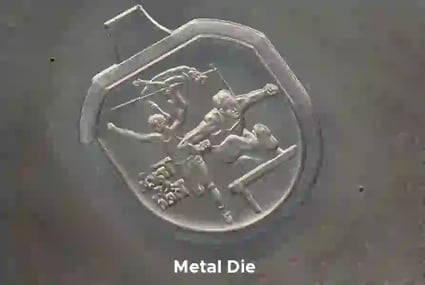 Die Cast Medals are made from a manufacturing process that forces molten metal under high pressure into a steel die.
Die Cast Medals are made from a manufacturing process that forces molten metal under high pressure into a steel die.
Zinc alloy is the most commonly used material for Die Cast Medals due to its durability and affordability.
Die casting can adhere to very precise technical specifications that can be useful with complex and multi-piece designs.
This type of medal is typically best for medium to large order quantities, ranging from 100 pieces to tens of thousands.
While die casting can produce medals in sizes ranging from 1”- 8” with varying thicknesses, from a production and pricing standpoint, sizes of 1.5” - 4” are most common for athletic event medals due to affordability. The standard thickness of a Die Cast Medal is ⅛” (3mm), but they can be thicker if the design calls for it.
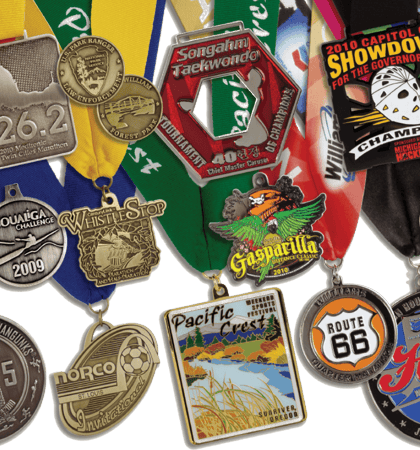 Die casting is ideal for simple or very complex designs that can incorporate features like 3D sculpting, cityscapes, portraits, multiple levels, cut-outs, multi-piece designs, moving parts, and amazing color options.
Die casting is ideal for simple or very complex designs that can incorporate features like 3D sculpting, cityscapes, portraits, multiple levels, cut-outs, multi-piece designs, moving parts, and amazing color options.
As one of the most popular types of custom medals, Die Cast Medals are used to recognize accomplishments at events ranging from small club meets, to high-profile marathons.
Event directors of soccer and martial arts tournaments, gymnastics and wrestling meets, plus many others take advantage of the virtually limitless design features and affordability this medal type offers to attract participants and make their events stand out.
Spin Cast Medals
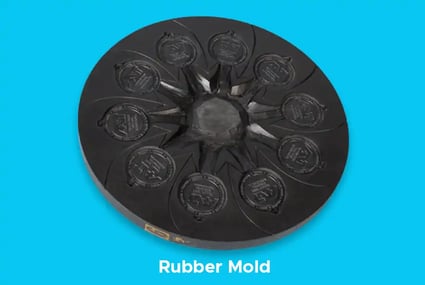
Spin Cast Medals are made from a manufacturing process that spins molten metal into a rubber mold.
Several different materials can be used with the spin cast process, such as zinc, lead, and pewter. Like Die Cast Medals, zinc is also the most common material used to create Spin Cast Medals due to its durability and affordability.
Pewter is often used for medals or emblems to create a higher perceived value. Lead was once commonly used because it was less expensive, easy to work with from a manufacturing standpoint, and has a good weight that customers always like. Utilizing lead has become much less common due to environmental concerns.
Spin casting is typically best for small to medium-sized medal orders, ranging from 25 - 1000 pieces.
While spin casting can produce medal sizes ranging from 1” - 8” with varying thicknesses, from a production and pricing standpoint, sizes ranging from 1.5” - 3.5” are most common for athletic event medals due to affordability. The standard thickness of a Spin Cast Medal is ⅛”, but they can be thicker if the design calls for it.
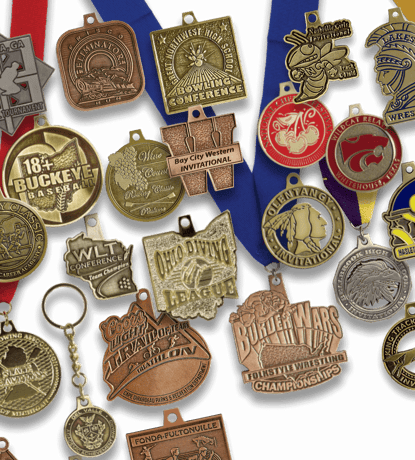 Spin casting is ideal for simple designs with raised and recessed areas, has popular finish options, and produces quality medals that hold fine design details. You can also add more advanced design features like enamel color fills, 3D sculpting, and multiple levels.
Spin casting is ideal for simple designs with raised and recessed areas, has popular finish options, and produces quality medals that hold fine design details. You can also add more advanced design features like enamel color fills, 3D sculpting, and multiple levels.
Because of the attributes mentioned above, Spin Cast Medals are often a great fit for high schools. Some medal vendors may even allow you to combine multiple medal designs to take advantage of greater quantity price breaks.
For example, a high school athletic director may order 50 wrestling medals + 350 track medals + 100 swimming medals, and he can receive the 500-piece price for all three unique designs in the same order.
How Do You Choose?
While both production methods can produce excellent medals, the best choice for you depends on your specific requirements in terms of quantities, design features, and timeline. An experienced medal vendor will guide you through the process, help you determine your requirements, and recommend the best fit for your event.
Get all of your questions answered by starting the conversation with an expert Sales Associate at Maxwell Medals & Awards.


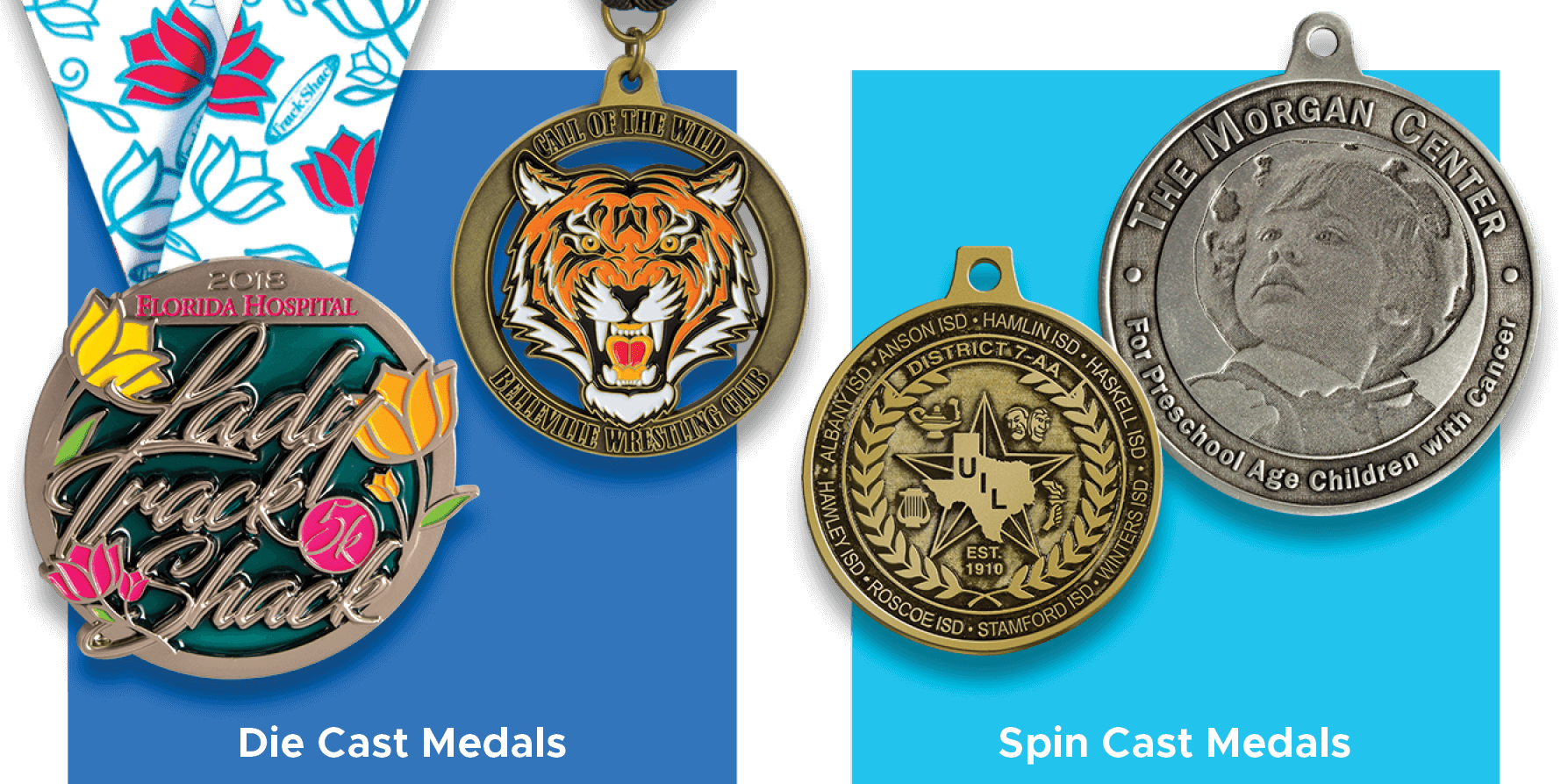
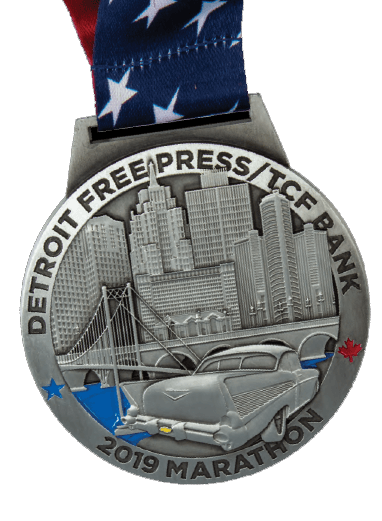
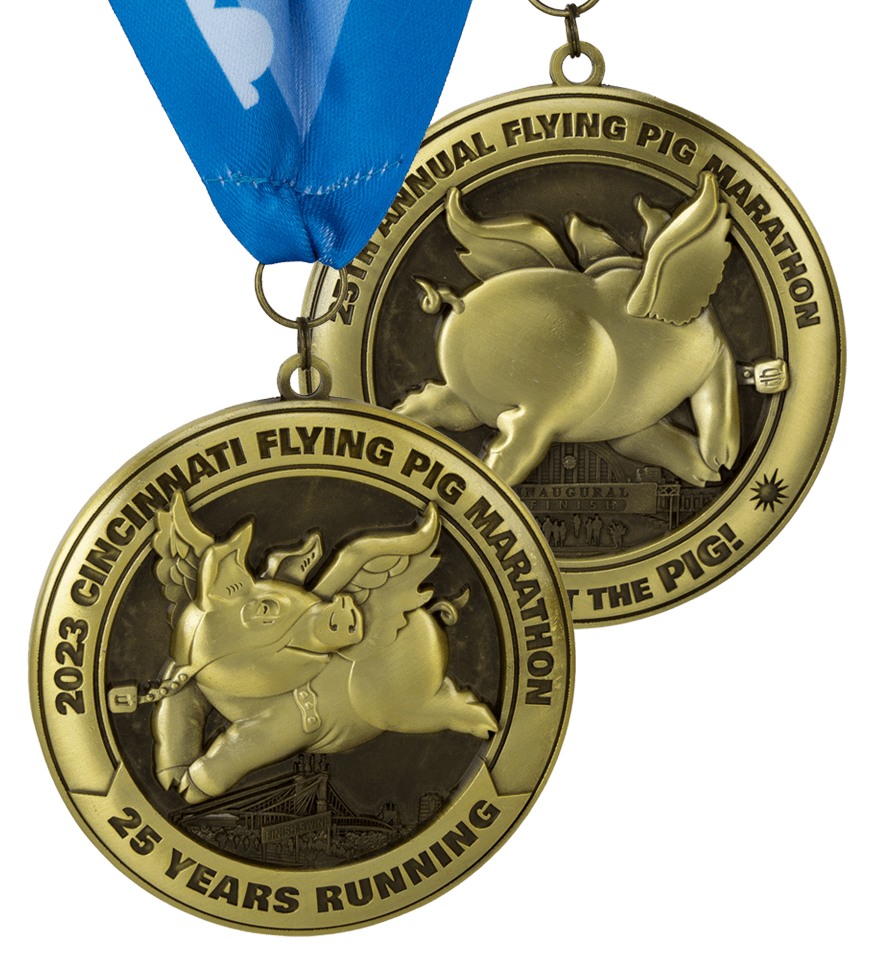
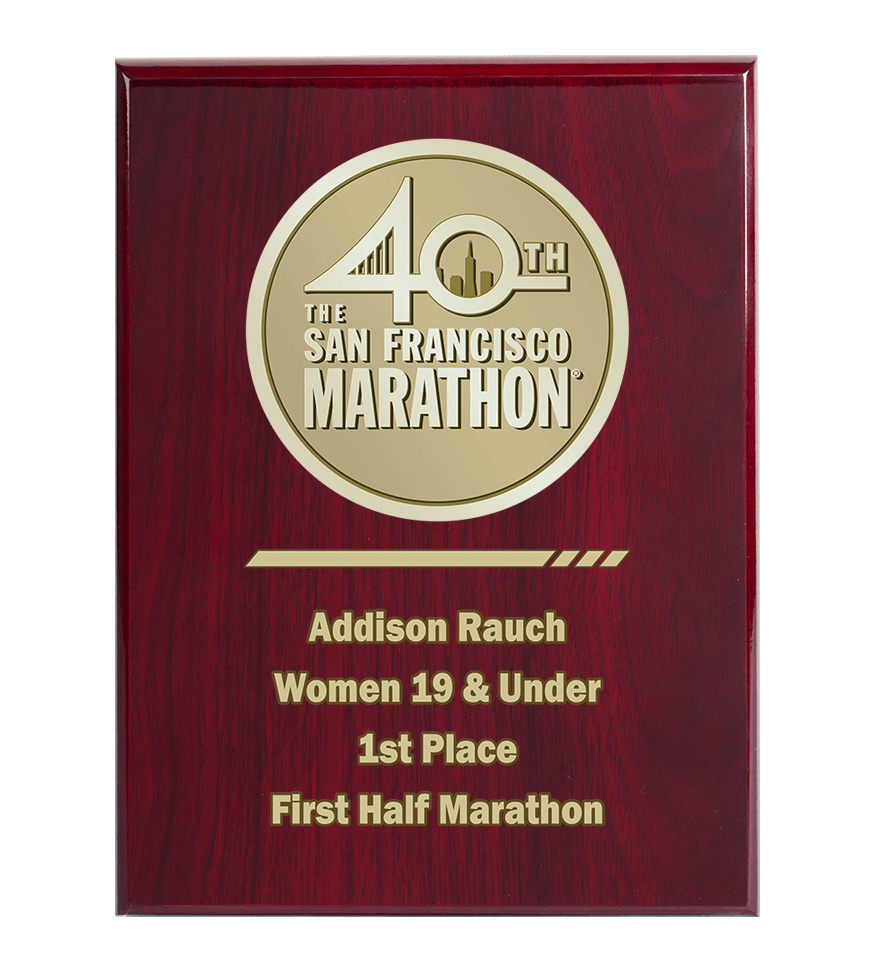
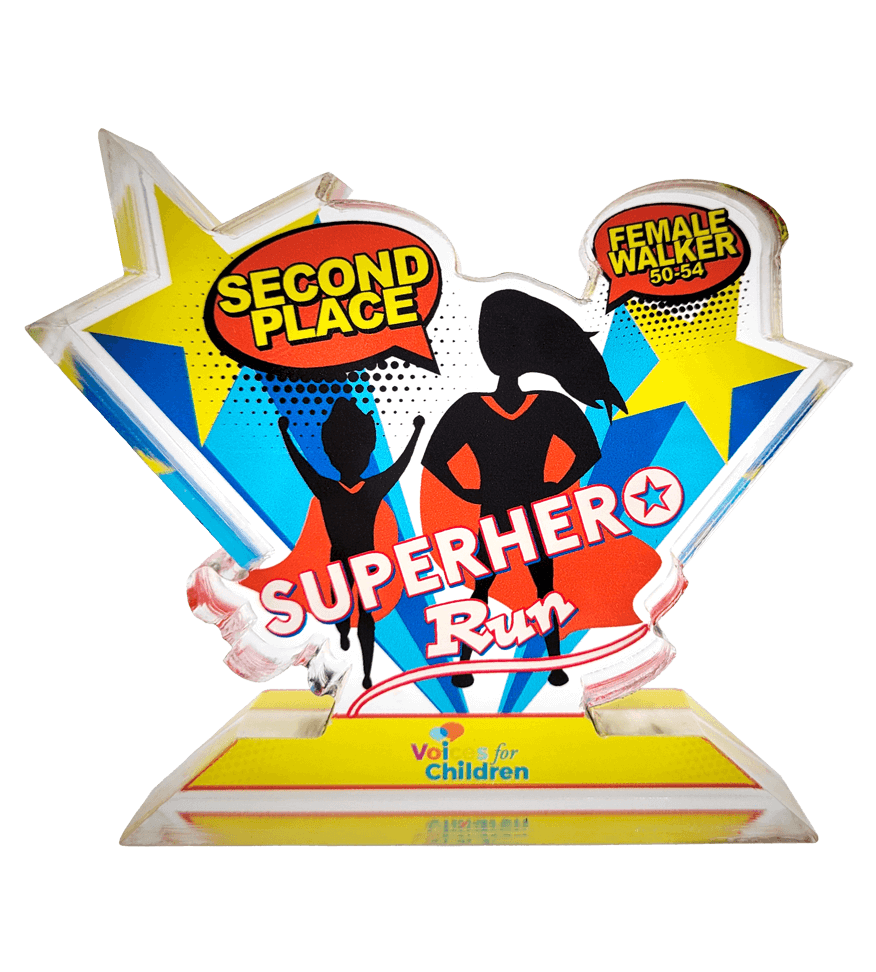
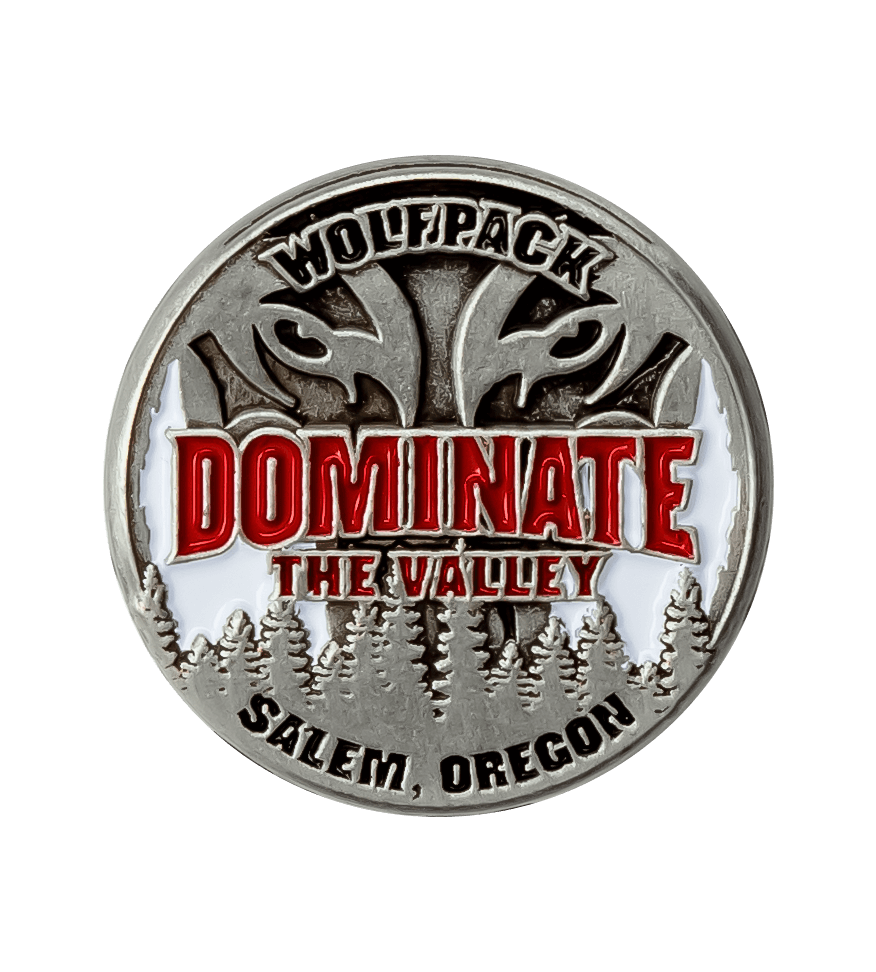
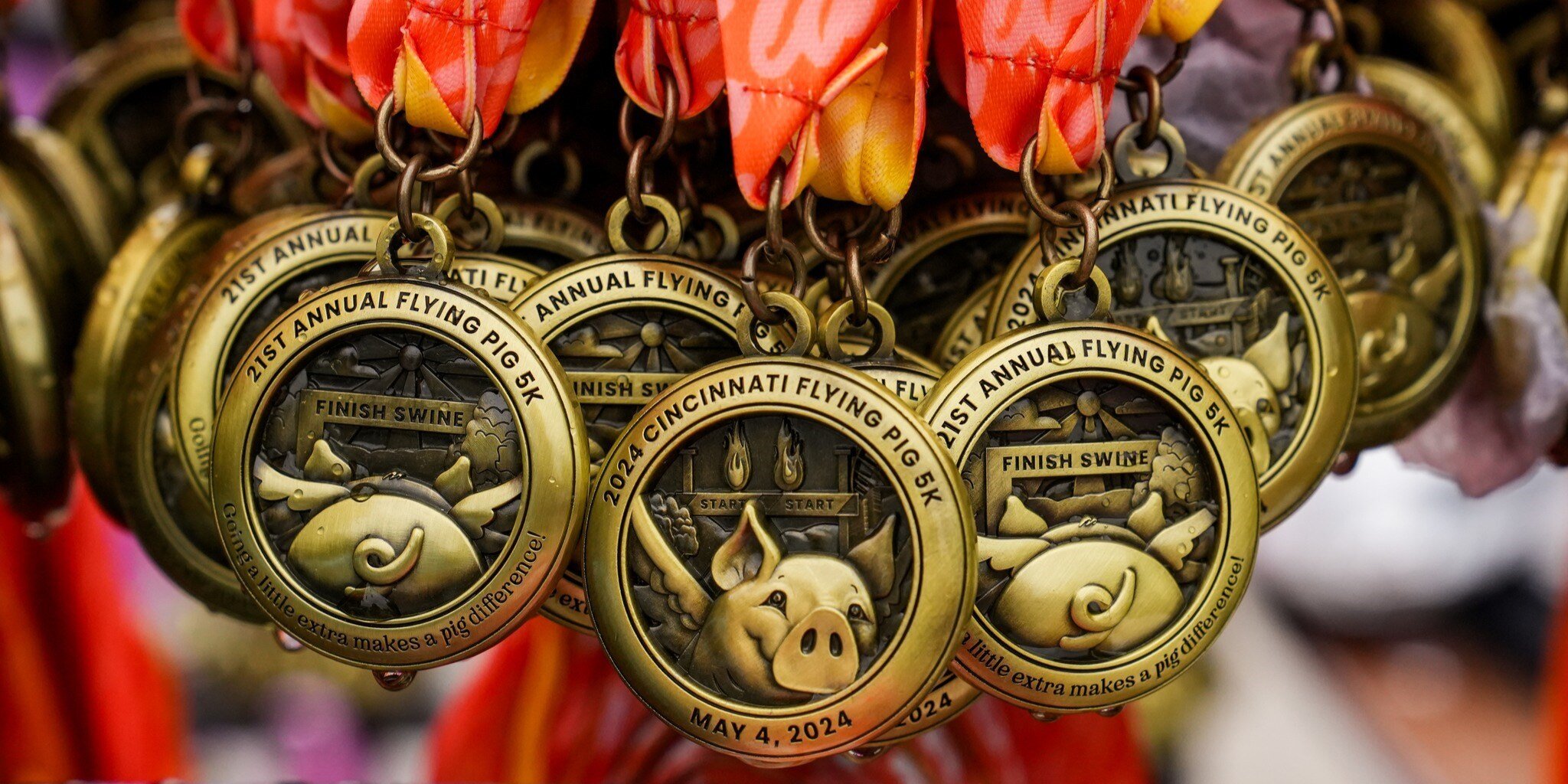

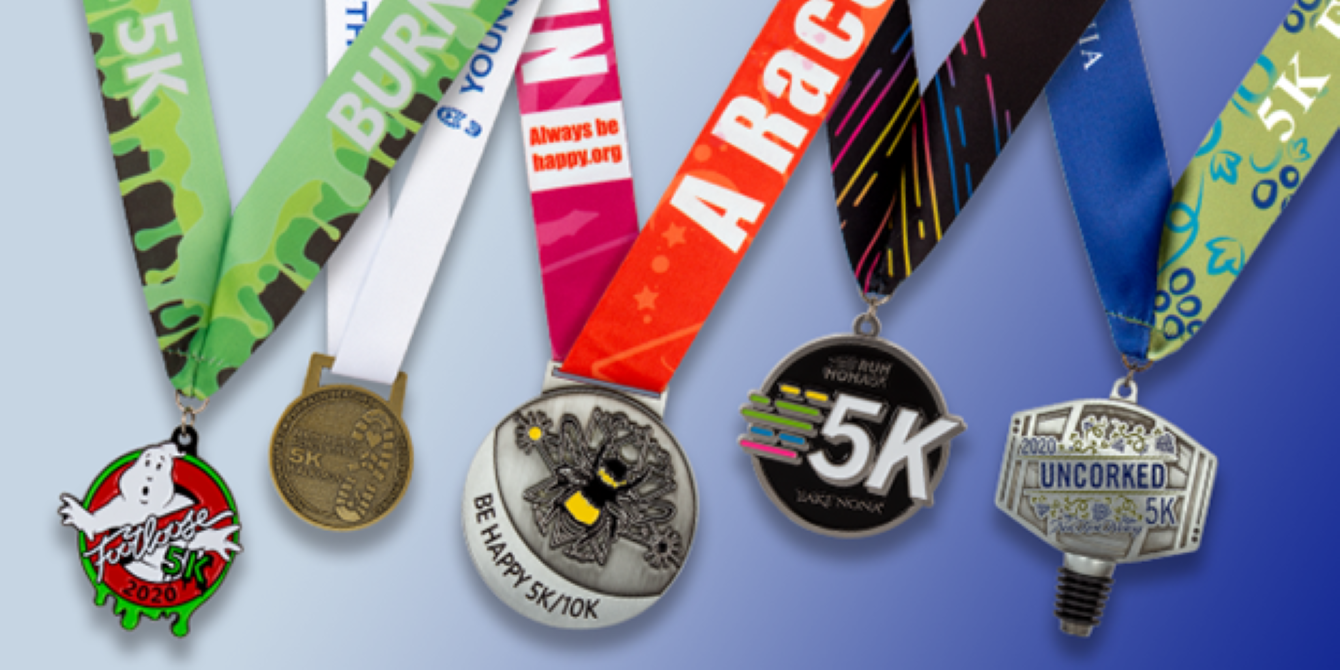
.svg)